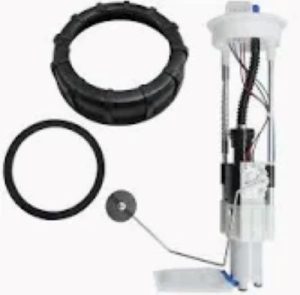The most common incompatibility issue with the fuel pump relay is when a certain kind of relay installed in a vehicle's fuel system does not meet the specifications that the fuel pump and electrical system require. Generally, a relay controls the flow of 12-volt power to the fuel pump, but voltage, amperage, or connector type mismatches are at fault for inconsistent delivery of fuel, issues in starting, or even a complete failure of the fuel pump. For example, when a fuel pump requires 15 amps to work efficiently but the relay can only support 10 amps, this results in the overheating or failure of an undersized relay due to creating intermittent power losses.
Relay pin configuration differences also present compatibility issues. Normally, relays are set up with various configurations, such as 4-pin and 5-pin, with each having its unique wiring pattern. A 5-pin relay could have an additional normally closed terminal, but a 4-pin does not, which would alter the application of the circuit to the fuel pump. If this is set up in a wrong configuration, the pump may or may not get power and power at the wrong times, which would very negatively affect fuel pressure. For proper engine performance, correct pressure is usually needed within a range of about 40 to 60 PSI.

Voltage ratings must be similar to ensure no operational issues. A relay incompatible with incorrect voltage tolerances, rated for 6 volts when the system requires 12 volts, will have too little flow of current to the pump, eroding its power by 10-20%. Under cold temperature conditions, with the battery itself only up to 80% efficiency, a low-voltage intolerant relay may make starting issues worse, as the pump would not get the required power to operate smoothly.
Relay quality and brand compatibility also affect the performance. High-quality relays are usually from Bosch or Denso to OEM standards and are engineered to function with specific vehicle models perfectly. The low-quality aftermarket relays may lack the precision in engineering for reliable performance and may suffer from voltage drops or overheating. Normally, investing in a compatible high-quality relay prevents early failure of the relay and helps the Fuel Pump maintain consistent flow and integrity within the system.
It takes care of all the compatibility factors like amperage, pin configuration, voltage tolerance, and brand quality to effectively support the relay for reliable fuel delivery in all driving conditions by minimizing interim operational risks.